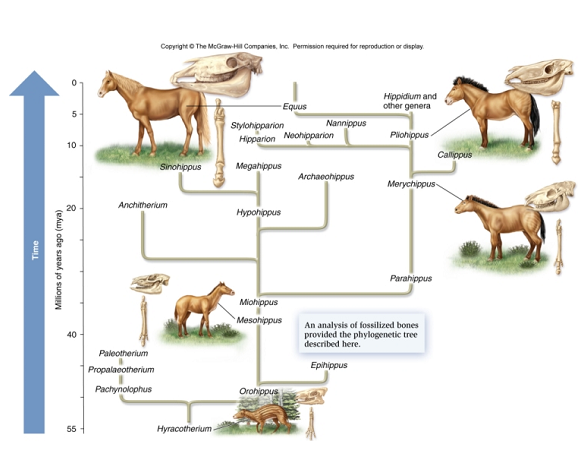Which of the following statements best summarizes the Krebs cycle?
a. One six-carbon glucose molecule is broken down to two three-carbon pyruvate molecules
b. NAD+ is regenerated in the final steps of this energy-releasing pathway.
c. Acetyl-CoA is broken down to CO2, producing ATP and reduced coenzymes.
d. Electrons are passed along an electron transfer chain, pumping protons across the inner mitochondrial membrane.
c
You might also like to view...
The tree in the figure is based on which type of traits, and what is the name of the genus for the most recent horse?

A. Genetic (DNA): Orohippus.
B. Morphological: Equus.
C. Molecular: Equus.
D. Genetic homology: Pliohippus.
E. Morphological: Hyracotherium.
Hemostasis in vertebrates includes all EXCEPT
which of the following? a. blood clot formation b. activation of factor X c. release of iron to aid in the clumping of platelets d. vascular spasms e. platelets releasing substances that cause them to attract each other
Which genetic condition can be described as the inheritance of the heterozygous phenotype, which is expressed as an intermediate between the dominant and recessive alleles?
A) dominance B) codominance C) incomplete dominance D) epistasis
Many algal species have life cycles consisting of alternating haploid and diploid generations. Which sentence describes the organisms that comprise the most common life cycle in green algae?
a. They are multicellular in the haploid stage and unicellular in the diploid stage. b. They are unicellular in the haploid stage and multicellular in the diploid stage. c. They are unicellular in both the haploid and diploid stages. d. They are multicellular in both the haploid and diploid stages.